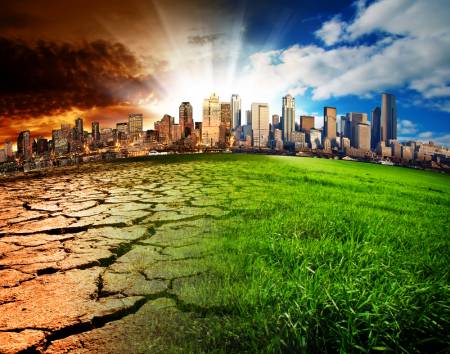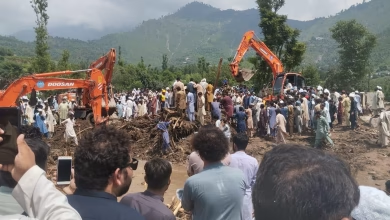Despite the hurdles, 2024 emerged as a beacon of hope in the fight against environmental and climate challenges. The year saw trailblazing policies, game-changing international partnerships, and a swelling wave of global and national dedication to sustainability. Let’s look at some of the year’s most inspiring breakthroughs.
Climate Resilient Punjab Vision & Action Plan 2024
The Climate Resilient Punjab Vision & Action Plan 2024 emerged as a transformative strategy prioritizing mitigation and adaptation measures to advance the green economy. Focusing on sectors most affected by climatic extremes, the plan aims to enhance the capacity of government departments to access international climate finance, ensuring that Punjab remains resilient in the face of climate impacts.
Collaboration with International Partners
Pakistan strengthened its engagement with international organizations, such as the United Nations and USAID, to bolster climate resilience. These collaborations focused on critical sectors like water management, agriculture, finance, and renewable energy, leveraging global expertise and resources to address local challenges effectively.
Commitment to Protect Children from Climate Impacts
At COP29, Pakistan made a groundbreaking pledge to safeguard the lives of 112 million children and young people vulnerable to climate-related disasters. The commitment emphasized the need for child-centered climate policies, ensuring that the youngest and most vulnerable are at the heart of the country’s climate resilience efforts.
Development of National Carbon Market Framework
In alignment with its goal of achieving a 50% reduction in projected emissions by 2030, Pakistan is working to develop a National Carbon Market Framework. This framework is designed to reduce greenhouse gas emissions and promote environmentally friendly projects, contingent on international financial support. It represents a significant step toward a sustainable and low-carbon future.
Sustainable Transportation in Pakistan
The Government of Pakistan advanced its Electric Vehicles (EV) Policy by installing EV charging stations at petrol pumps in Islamabad. Additionally, the government introduced initiatives such as free electric bikes for top-performing students and subsidized loans for electric rickshaws and bikes, making clean transportation accessible and affordable for the masses.
Renewable Energy Advancements
Punjab took a leap forward with the approval of a solar energy transition for all provincial prisons. A budget of Rs. 2.30 billion was allocated for installing solar systems across 44 prisons, reducing billions in electricity costs while promoting renewable energy.
Living Indus Initiative
The Living Indus Initiative was launched to protect and restore the ecological health of the Indus River. By focusing on ecosystem-based adaptation and green infrastructure, this initiative aims to enhance resilience against climate impacts, ensuring the sustainability of one of Pakistan’s most vital natural resources.
Green Pakistan Upscaling Programme Phase-1
With a budget of PKR 125.18 billion, the Green Pakistan Upscaling Programme Phase-1 aimed to expand afforestation and wildlife conservation efforts. This initiative contributes significantly to carbon sequestration and biodiversity preservation, underscoring Pakistan’s commitment to tackling climate change.
AI-Based Flood Early Warning System in Swat
The introduction of an AI-based Flood Early Warning System (FEWS) in Swat, Malakand Division, marked a major step in disaster preparedness. A collaboration between WWF-Pakistan, the Ghulam Ishaq Khan Institute, and local authorities, the system provides timely alerts to minimize flood-related damages.
Public Engagement in Environmental Sustainability
In Malakand Division, social media influencer Fayaz Khan inspired thousands with the campaign “Yo Tan, Yo Bothy” (One Person, One Tree). The initiative encouraged widespread tree plantation, with participants sharing their contributions on social media. Fayaz Khan’s determination to continue this campaign in 2025 underscores the growing role of community-driven environmental action.
Judicial Recognition of Environmental Rights
The judiciary expanded the scope of Amendment 26, Article 14 of Pakistan’s Constitution, which guarantees the Right to Dignity. Courts interpreted this right to include access to a clean atmosphere and an unpolluted environment, emphasizing the state’s responsibility to maintain sustainability.
Globally, 2024 underscored the urgency of climate action while providing hopeful examples of progress. From groundbreaking climate policies to technological innovations and community-led initiatives, this year’s achievements highlight humanity’s collective ability to address environmental challenges.
As we move into 2025, these positive developments serve as a testament to the power of collaboration, innovation, and commitment. Together, these efforts pave the way for a sustainable and resilient future for generations to come.






